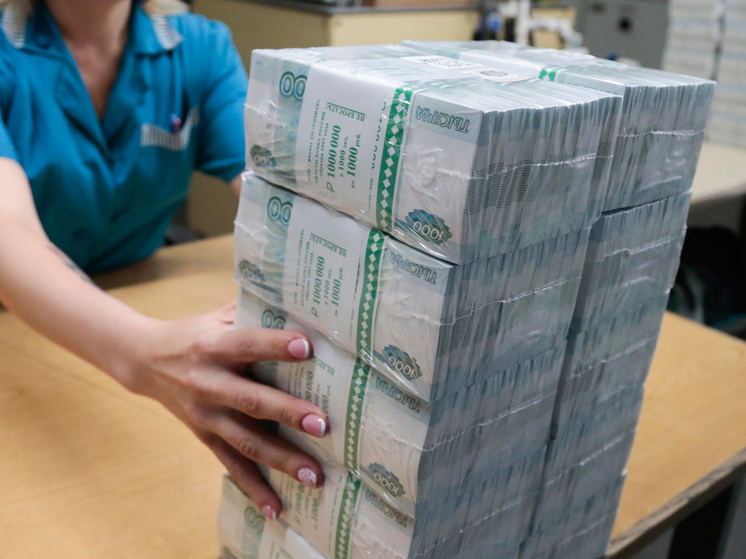The ghost of communism was seen in the excess profit tax announced by the authorities
[ad_1]

According to experts, the measure is knocked out of the legal field
The Government of the Russian Federation approved the bill of the Ministry of Finance “On the tax on excess profits of past years.” This is stated in the materials of the legal commission on legislative activities. The Ministry of Finance has prepared a document evoking nostalgic thoughts about Lenin’s decree on surplus appropriation in 1919. We are talking about the procedure for regulating the “tax on excess profits of previous years” – a one-time fee that will affect a number of successful Russian companies. According to experts, this measure is clearly not without sin. First of all, it contradicts the current tax legislation and the Constitution of the Russian Federation, as indicated by another domestic agency – the Ministry of Justice.
The one-time fee is planned to be formalized as an “emergency tax”, which the Ministry of Finance proposes to enshrine in the Tax Code (Tax Code). As Deputy Finance Minister Alexei Sazonov explains, “the development of the bill is due to the current economic situation and the fact that in 2021 and 2022 there was a fairly high level of market income in some sectors of the economy, in connection with which the relevant organizations were able to generate additional profit.”
The so-called windfall tax (tax on income “brought by the wind”) of 10% of the excess business profits in previous years will need to be paid no later than January 28, 2024. If the fee is paid before November 30, 2023, the business will receive a “discount”, and the rate will be 5%. The exception will include companies whose arithmetic average profit for 2021-2022 was less than 1 billion rubles. In addition, enterprises producing oil, gas and coal, as well as refineries, producers of liquefied natural gas and all participants in the SME registry (small and medium-sized businesses) will be withdrawn from the law. In the latest version of the document, it was decided to exempt users from collecting regime of the unified agricultural tax (USHT). In February, the Ministry of Finance estimated potential revenues from windfall tax at 300 billion rubles. According to the head of the department, Anton Siluanov, in 2022, Russian business made a profit in the amount of 26 trillion rubles, and in 2021 – 34 trillion, against 14 trillion on average per year in 2018-2019.
Meanwhile, the Ministry of Justice considered the windfall tax to be contrary to the Constitution of the Russian Federation. According to its representatives, since the tax base is the profit of previous years, this gives retroactive effect to the relevant legal norms.
“I have a negative attitude to the initiative,” says Igor Nikolaev, chief researcher at the Institute of Economics of the Russian Academy of Sciences. – Firstly, we are talking about increasing the tax burden for businesses (albeit in a one-time format) at the most inopportune moment for this. The economy is already facing serious difficulties, and here its development will be further discouraged. Secondly, the “extraordinary tax” is actually introduced retroactively, breaking out of the entire legal field and creating a dangerous precedent.”
Where is the guarantee that after some time the state, which urgently needs another amount of money, will not come up with a similar fee? We already have income tax, VAT, everything is clear with them, says Nikolaev. Windfall tax is a completely different matter, rather reminiscent of a surplus appraisal, a method of “dispossession”. And here’s another question: why today, in the conditions of a frankly unfavorable foreign economic situation, the state is in no hurry to compensate business for its costs? It’s unfair. It turns out a one-way street. Finally, the required 300 billion rubles will not solve the problem of covering the budget deficit, which already exceeds 3.4 trillion rubles.
“If there is a task to introduce some kind of wording that will suit everyone, then from a legal point of view this is not a problem at all. Anything can be adjusted to the requirements of the current moment, – says Petr Gusyatnikov, Senior Managing Partner of the law firm PG Partners. – In particular, the taxable base, by definition, cannot be made up of the profits of previous years. The question here is of a slightly different, non-legal nature: how will the business react, which finds out after the fact that someone has to pay extra? Firstly, it undermines the credibility of the authorities, because it is absolutely unclear what lies ahead for you. Secondly, it will not be easy for companies to find the necessary amount: after all, this money has long been invested and reinvested somewhere. No one counted on expenses retroactively.”
Of course, the 300 billion rubles that the Ministry of Finance estimates potential windfall tax revenues will not cover the growing budget deficit. But now there are no simple solutions left – this tax will become one of the measures of an integrated approach to the problems of the economy, says Artem Deev, head of the analytical department at AMarkets. In his opinion, it is logical that companies from the oil and gas industry will not pay windfall tax. The state has already allocated funds to them within the framework of damper mechanisms, and now it would be strange and inconsistent to ask them back in the form of a tax.
[ad_2]
Source link






